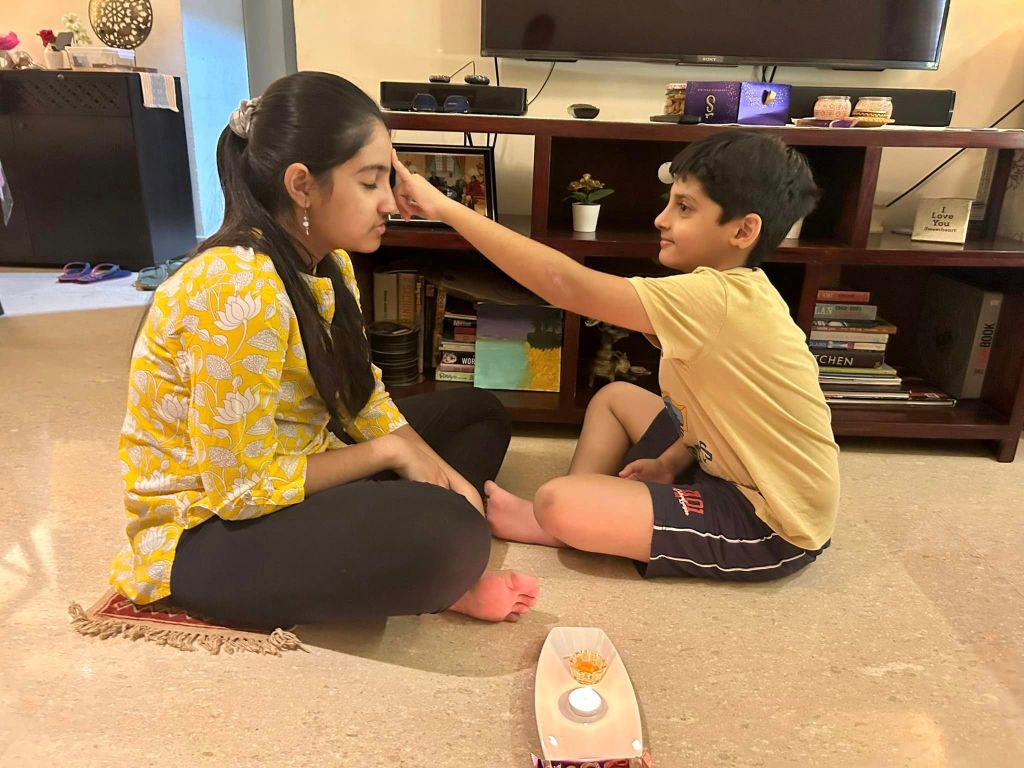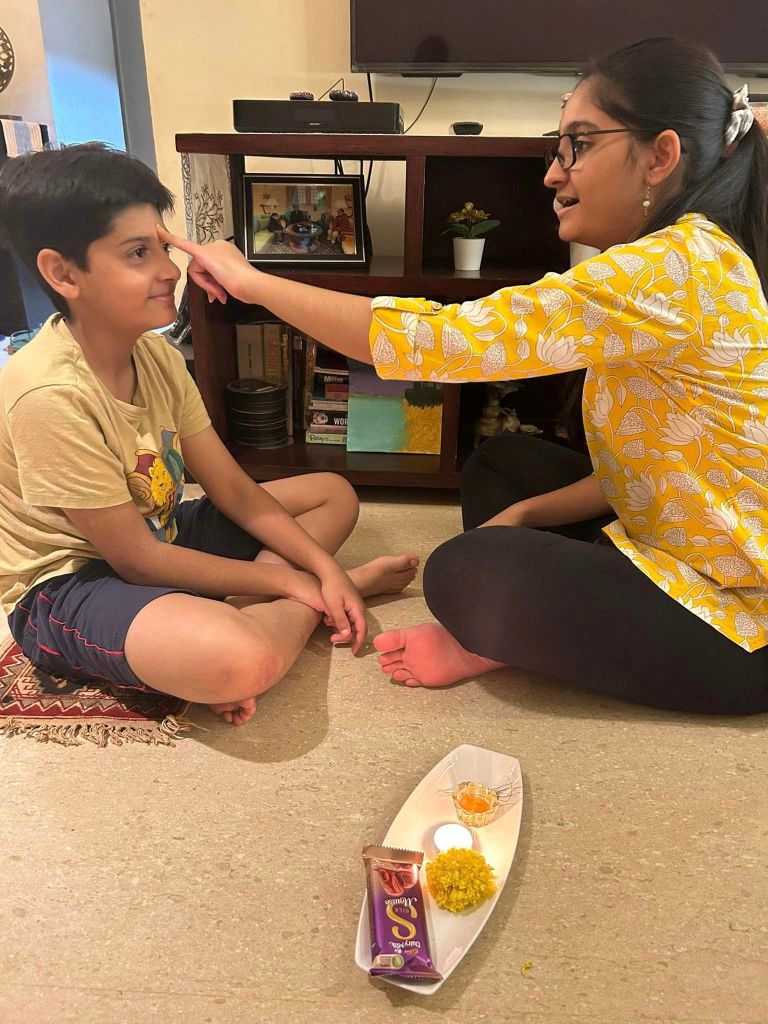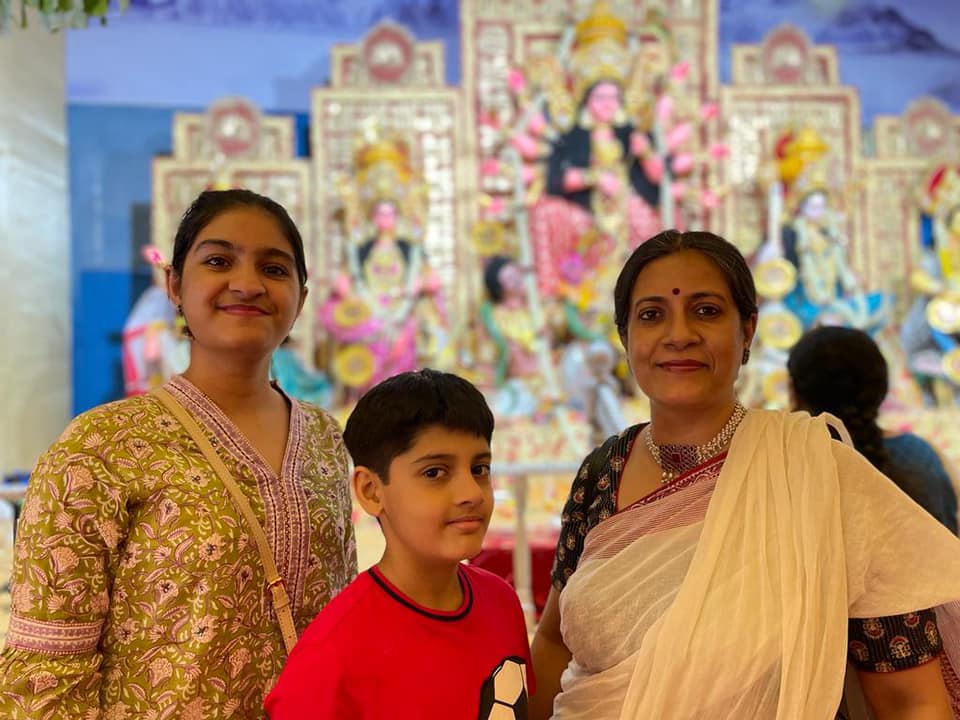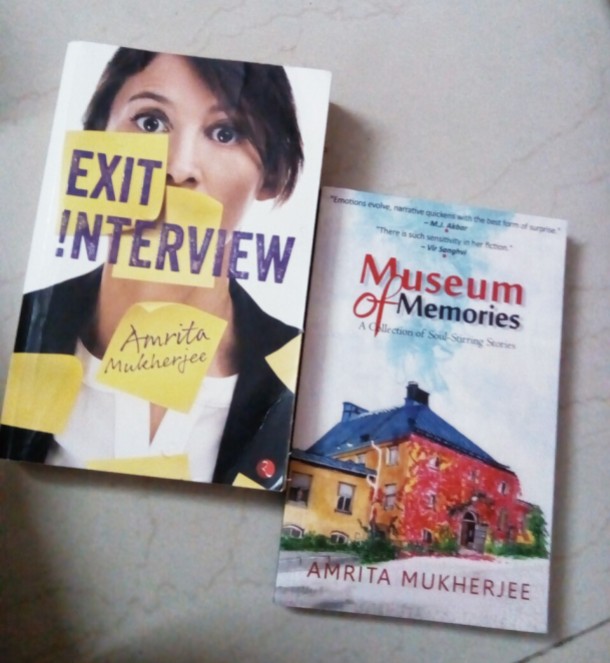
If there is something that anyone living abroad can share in abundance, it’s their guest experiences. Apart from the literal baggage that they bring with them, some do leave you with an emotional baggage of memories that you wish didn’t happen. You often sigh in relief that those are just memories that wouldn’t be re-lived because chances are you wouldn’t let those guests into your house – ever again.
This story is about a similar guest experience of Leela and Ankush. The couple moved to Dubai five years back. Child free and well placed, they lived in a sprawling two-bedroom apartment in the heart of the city, with a pool on the terrace and an upmarket mall across the road.
When Leela’s ex-colleague’s sister from Kolkata, Namita, someone she had never seen in her life, moved to Dubai and had made the customary call to her – something anyone grappling in a new place does- she had obviously invited them for dinner.

Over mutton and luchi cooked by her Bengali Chef, she had told them of every possible thing she knew about Dubai, except for the fact that Namita and her husband Ajit were the last guests to be entertained in their plush apartment. The next day they were moving to a one-bedroom apartment next door because they couldn’t afford the rent anymore.
It had become like a ritual for new settlers in Dubai to come calling, but very few actually returned the dinner invitation or stayed in touch once they got busy with their lives and with Namita and Ajit, Leela expected the same to happen. So she thought it was unnecessary to tell them that this posh abode, that she was so proud of, wouldn’t belong to them from the very next day.
After that grand dinner, as expected Namita and Ajit got on with their lives, the invitation wasn’t reciprocated and the phone calls too started dwindling. Leela and Ankush settled in their one-bedroom home. They weren’t as welcoming to guests anymore because that sense of pride they had in their home was gone. They had nothing to show off. The only saving grace was the smaller space. For a cleanliness freak like Leela, who took up the dusting cloth the moment she returned from office, there were less nooks and crannies now from where dust had to be eradicated.

Almost a year had passed when suddenly one day there was a frantic phone call from Ajit, all the way from Kolkata.
“Didi, please help. We are returning to Dubai tomorrow but I came to know our rented place has been taken over by the landlord. He had sent me some legal notice earlier but I could not make out because it was in Arabic. Didi can Namita stay with you for a few days till I find a new place? I won’t stay with her as my office is giving me five-star accommodation,” he said.
All in one breath.
Leela was in shock.
How could she tell him about their fall from grace, about the absence of a guest room in their home?
“Umm…can’t Namita come back later after you have found the place?”
Leela was over her initial shock.
“She has to go back with me. We bought tickets on an offer and we will not get any refund if we cancel them. Please didi, a few days only. We have no one else we can ask for help in Dubai.”
Leela said she would call back.
Her anxious call went to Ankush.
“The Malayalees would help anyone from Kerala,” Ankush philosophised. “Although I am not sure what the Bengalis would do,” he added.
So it was decided that this Bengali couple would help out this other Bengali couple from Kolkata whom they had met only once, but since they didn’t have anyone else in Dubai, they would be the pillar they could lean on. Just like Malayalees supported each other in their community.
Ankush went a step ahead. He wanted to give Namita their bedroom but Leela wouldn’t have any of that. She felt their sofa bed in the sitting room was comfortable enough.
“You are not understanding Ankush. If Namita has the bedroom Ajit will move in too and they would junk their plans to find a rented apartment. Two month’s rent saved in Dubai is a lot of money,” said Leela.
Ankush gave her the daggers but in his heart he probably knew Leela made sense.
The next day they arrived, Namita looked a wee bit apologetic but Ajit walked around like he owned the apartment.
“Can I get a towel? Need a shower badly,” were the first words Ajit offered.
Leela handed him a brand new Marks & Spencer towel.
“Your washroom is so small, the other house had a bigger one. But thankfully you still have a bathtub,” said Ajit.
Leela cringed. She wasn’t sure if her effort at being a Malayalee was the right decision.
They devoured lunch cooked by the Bengali Chef, who had been retained, that Ajit was quick to point out.
“Good to see you still have the cook.”
Post lunch, Ajit wanted a drop to his accommodation from Ankush.
“Which hotel?” Ankush asked starting the car.
“I refused the hotel accommodation. Don’t want to be a burden on the company because of what happened. I will be staying with a colleague who lives in a single accommodation nearby.”
Ajit wanted to get a drop on the main road and walk to the house, but Ankush insisted he could not leave him with his luggage like that. When they approached the run-down two-storey building with the community litter-bin standing in front of it, Ankush realized the reason for Ajit’s reluctance to let him near it.
From the next day, when they left for work, Namita was sleeping on the sofa bed. When they were back they found her in the exact same position. But magically a stash of utensils had piled up in the sink and food crumbs were everywhere, the fridge looked raided and Ajit’s washed clothes and underclothes were hanging in the balcony.
After three days of this, Leela took leave from work. Ajit appeared at meal times and he claimed he was looking for an apartment and attending office. After meals, Namita always went back to bed and Leela to the sink.
Then five nights later Ajit made an appearance at 11pm.
“I can’t sleep in that house anymore. Bedbugs. Too many. Haven’t been sleeping at night. Will sleep here from now on.”
“Bed bugs!!??” Leela shrieked.
“Why didn’t you tell me? That means you have been bringing them here,” she said agitatedly.
“Namita’s washing my clothes with care,” said Ajit matter-of-factly.
“But she is washing your clothes here only. In our machine.”
“Can you give me a blanket please? I am very sleepy,” Ajit said. He had no intention of extending the conversation.
“And Ankush da a T-shirt will help. I didn’t get any night clothes.”
Ankush handed him a blanket and a T-shirt. He glanced at Leela to gauge the impact of the information just shared. It wasn’t good.
Leela stayed up all night scanning every inch of the bed and kept complaining that she could feel bug bites. Ankush knew his wife bordered on OCD when it came to bed bugs. They had lost some friendships too because of this ugly creature.
In the next few days Leela upturned all the furniture and searched every corner for that dreaded black crawling dot. Her unslept eyes had dark circles and she had extended her leave.
But despite this catastrophe Leela strangely remained loyal to their pledge of helping the “hapless” couple out. There was only one thing Leela insisted. Ajit had to choose in which house he wanted to stay because he couldn’t keep going back to a bed bug -infested house and then sleep in their house. Ajit’s choice need not be elaborated.
At the end of eight days, Ajit finally announced that he had found an accommodation.
“Take the blanket, bed sheet, towel, T-shirt everything with you.”
This was Leela’s first reaction.
A few months later Namita called to inform she had laundered everything they took and wanted to return those. Leela remained generous. She asked Namita to keep everything.
*
Leela was in a meeting. It wasn’t a known number. There were three missed calls. Fourth time she picked up.
“Leeladi my name is Anindita your neighbour Umesh kaku gave me your number. It’s been three days I have moved to Dubai. He said I should get in touch with you. I was wondering if we could meet for coffee.”
“Anindita, I am afraid I am busy for the next eight weekends.”
This story has been published in the UK in the Durga Puja 2018 issue of Panchmeshali- The Diaspora Magazine. (Photographs taken from the net.)





















